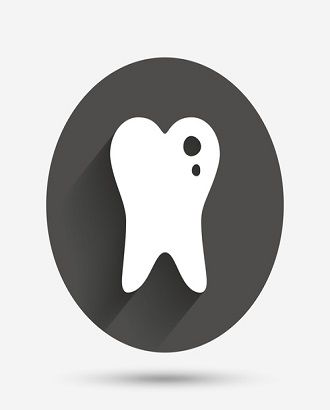Weekly Tech: The Alzheimer's Drug that Stimulates Tooth Regeneration
Technology is quickly transforming dentistry. From digital record-keeping to machines that seem straight out of a SciFi feature, the 21st century has gifted the medical industry some amazing devices. Dentists are especially proactive about adopting new technology in their practices, so DMD is bringing you a weekly spotlight on some of the best products on the market. Continue below to read about this week's focus, drugs.

While traditional fillings are done with a kind of cement, new methods may now allow a tooth to fill itself.
Repairing cavities may soon become an easier process for both dentists and patients after a new study found a way to force a tooth to regenerate itself completely over time.
RELATED:
- The Best Compensation Package for Hygienists
- Oral Health in the Heart of Opioid Country and Beyond
- 7 Estate Planning Moves to Make Now
Researchers with King’s College in London found a new method for filling in cavities, one which would help a tooth regrow itself to fill a cavity rather than depend on a traditional filling.
The study, published in January 2017, explains that an enzyme called glycogen synthase kinase-3 (GSK-3) inhibitor can stimulate a tooth into regrowing dentine, the chief material found in teeth.
Typically, teeth produce a small layer of dentine to protect what remains of an infected or damaged tooth. However, this layer, referred to as a dentine bridge, does not fill in the damaged tooth completely.
Traditionally, cavities would be filled with a form of cement. The King’s College researchers proposed placing a small organic sponge soaked with GSK-3 inhibitor into the cavity instead.
While normally the cement would remain in the tooth forever, the sponge would instead degrade. As it did so, the GSK-3 inhibitor would help encourage continuous dentine growth, allowing the tooth to naturally fill in its own cavity.
This would restore the tooth to full health, with none of the side effects found with normal filling materials. The most common material used to fill teeth contains elemental mercury, and its alternates may not be as strong as the original tooth or able to treat large cavities.
In addition, stimulating a tooth into repairing itself prevents the need for fixing cavities or fillings if they degrade or need work after the original implantation.
The King’s College study found that the process took roughly six weeks to completely restore teeth in mice.
Dr. Paul Sharpe, a professor and the head of Craniofacial Development and Stem Cell Biology Division at King’s College London Dental Institute, said the breakthrough with GSK-3 came after discovering that a compound used to treat Alzheimer’s patients, Tideglusib, also stimulates stem cells in teeth.
Every tooth already contains a small number of stem cells, which are what help grow the original dentine bridge. Tideglusib, when it is included in the cocktail of small molecules used with GSK-3, forces these stem cells to continue differentiating into the tooth.
Sharpe, the study’s senior author, said the fact that Tideglusib is already an approved compound to treat Alzheimer’s patients will help it be accepted for this new procedure more quickly. The collagen sponges Sharpe proposed as a delivery vehicle are also approved for treating people already and will likely not need to be re-approved through a clinical study.
“The simplicity of our approach makes it ideal as a clinical dental product for the natural treatment of large cavities, by providing both pulp protection and restoring dentine,” he told King’s College internal news division. “In addition, using a drug that has already been tested in clinical trials for Alzheimer’s disease provides a real opportunity to get this dental treatment quickly into clinics.”
According to the study, the amount of Tideglusib needed for a single human tooth is less than the amount already approved for Alzheimer’s treatments.
The study focused on mice, and human clinical trials have not yet been completed.
Discover more Dentist’s Money Digest® news here.
ACTIVA BioACTIVE Bulk Flow Marks Pulpdent’s First Major Product Release in 4 Years
December 12th 2024Next-generation bulk-fill dental restorative raises the standard of care for bulk-fill procedures by providing natural remineralization support, while also overcoming current bulk-fill limitations.